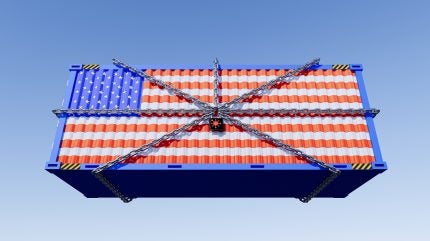US textile sector supports CBP’s stricter low-value import rules

US TEXTILE SECTOR SUPPORTS CBP’S STRICTER LOW-VALUE IMPORT RULES
The
National Council of Textile Organizations (NCTO) has welcomed the United States
Customs and Border Protection's (CBP) Notice of Proposed Rulemaking (NPRM) that
seeks to revise regulations concerning the exemption for shipments of minimal
value (de minimis).
This
exemption currently allows for goods valued at no more than $800 to be imported
into the US without being subjected to duties or certain taxes.
The proposed adjustments intend to exclude
specific merchandise from this exemption, particularly items affected by
designated trade or national security measures.
The proposal necessitates that shipments
leveraging this exemption must provide a detailed classification of the
merchandise using the ten-digit Harmonized Tariff Schedule of the United States
(HTSUS).
The suggested regulatory changes aim to fortify protections around
intellectual property, consumer health and safety, and bridge enforcement gaps.
These measures are designed to defend US industries and labour against
inequitable trade practices.
This Notice of Proposed Rulemaking (NPRM)
represents one part of a two-pronged initiative announced by the Biden
Administration on 13 September 2024, which focuses on safeguarding US
consumers, workers, and businesses. Following up on this initiative on 13
January 2025, CBP introduced an NPRM concerning the Entry of Low-Value
Shipments (ELVS).
Over the past decade, there has been a
significant surge in the number of imports availing themselves of the de
minimis exemption. From approximately 139m in fiscal year (FY) 2015, these
imports have escalated by over 600%, reaching beyond 1bn annually by
FY23.
In FY24, this figure further climbed to
upwards of 1.36bn shipments. Such a dramatic rise poses challenges for CBP’s
capacity to enforce compliance with US trade laws, as well as regulations
pertaining to health and safety, intellectual property rights, and consumer
protection.
The US textile industry, also vital for
military and PPE supplies, is facing significant demand loss due to 4m daily de
minimis shipments of cheap, often illegal imports. This results from an
outdated trade provision that allows Chinese e-commerce platforms and importers
to bypass tariffs and flood the US market.
“Both the volume and combined worth of
low-value, or de minimis, shipments to the United States have risen
significantly over the past ten years,” said Homeland Security Secretary
Alejandro Mayorkas.
“The exemption of these goods from duties or
taxes has undermined American businesses and workers and flooded our ports of
entry with foreign-made products, making CBP’s vital work screening these goods
for security risks more difficult. The actions announced today to tighten this
exemption will strengthen America’s economic and national security.”
NCTO
welcomes ‘meaningful action’ for domestic textile industry
Commending the rulemaking, NCTO’s president
and CEO Kim Glas said: “We welcome CBP’s announced notice of proposed
rulemaking exempting de minimis tariff-free benefits on imports ‘specified as
trade and national security actions.”
“The administration’s decision to initiate
the rulemaking process in its final days is a significant and meaningful action
for our domestic industry and that of other manufacturing sectors. We urge CBP
to expedite the rulemaking process to the fullest extent possible and
appreciate the agency’s strong engagement with our industry,” Kim Glas
added.
The NCTO also called upon the Trump
administration to endorse and swiftly implement a comprehensive solution to
tackle the escalating de minimis issue beyond the announced action.
Glas urged President Donald Trump to take
immediate steps to abolish de minimis through an executive order and encouraged
Congress to collaborate with the new administration on a permanent resolution
to close this loophole decisively.
The NCTO, a trade association based in
Washington, DC, represents domestic textile manufacturers. In 2023, the US
textile supply chain employed 501,755 people and saw shipments worth $64.8bn.
That same year, US exports of fibre, textiles, and apparel totalled
$29.7bn.
